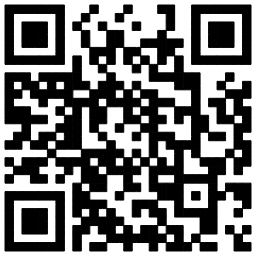 |
彭凯平
清华大学心理学系教授、博士生导师
手机:19821197419
 微信:19821197419
邮箱:
 驻地:
|
详细介绍
彭凯平
清华大学心理学系教授、博士生导师
个人履历:
彭凯平:心理学家,清华大学全球产业研究院院长,清华大学心理与认知科学系教授、博士生导师,清华大学学术委员会委员,多所国际著名商学院常聘客座教授。1983年毕业于北京大学心理学系后留校任教。1997年获得美国密歇根大学心理学博士学位,后任教于美国加州大学伯克利分校心理学系。曾获美国加州大学伯克利分校心理学及东亚研究终身教职,曾任加州大学社会及人格心理学专业主任和美国心理学会科学领导委员会成员等国际职务。2008年5月起受聘清华大学心理学系教授和首任系主任。主要研究方向为普通心理学、管理心理学、文化心理学、积极心理学、跨文化沟通心理学。潜心学术,成果丰厚,深受学生好评,是国际文化心理学研究领域的领军人物之一,被誉为中国积极心理学之父。在《中国社会科学》《Psychological Review》《American Psychologist》《Journal of Personality and Social Psychology》《Psychological Science》《Computers in Human Behavior》《Emotion》《Applied Psychology: Health and Well-Being》等等学术期刊上发表论文450多篇, 论文引用量两万五千余次,自2015年起,连续10年入选爱思唯尔(Elsevier)“中国高被引学者心理学家榜单”;出版图书《心理测验:原理与实践》《New Readings in Cultural Psychology》《跨文化沟通》《吾心可鉴—澎湃的福流》《活出心花怒放的人生》《孩子的品格》《Psychological and Cultural Foundations of East Asian Cognition》等中英文著作12部。2016年,入选人民网“健康中国年度十大人物”。2018年,获得清华大学第十六届“良师益友”奖。2023年,获得清华大学新百年教学成就奖,同年入选“2022中国十大品牌年度人物”。连续9年获得清华大学经管学院EMBA最受欢迎的教师奖、教学突出贡献奖。为众多政府和国际公司作战略、人事、企业文化和管理咨询,例如:福特、宝马、美国航天局、万科、中航、总装备部等。
论文代表:
(2024). Seeing is more than believing: Personal experience increases climate action. British Journal of Social Psychology. Advance online. https://doi.org/10.1111/bjso.12731. (2023) Effects of a self-affirmation intervention on Chinese adolescents during the COVID-19 pandemic: A large-scale randomized controlled trial. Applied Psychology-Health and Well-being. Advance online. https://doi.org/10.1111/aphw.12516.
(2023). Social media use, uncertainty, and negative affect in times of pandemic crisis. Digital Health, 9, 1–17.
(2023). Detecting the risk of bullying victimization among adolescents: A large-scale machine learning approach. Computers in Human Behavior, 147, 107817.
(2023). Fear during pandemic promoted holistic cognitive style: The moderating role of uncertainty. Emotion, 23(7), 1918–1928.
(2021). Neurostructural correlates of dispositional self-compassion. Neuropsychologia, 160, 107978.
(2019). Sympathy and responses to suffering: Similarity and variation in China and the United States. Emotion, 19(2), 320–333.
(2019). An analysis of well-being determinants at the city level in China Using Big Data. Social Indicators Research, 143(3), 973–994.
(2019). A World of Blame to Go Around: Cross-Cultural Determinants of Responsibility and Punishment Judgments. Personality and Social Psychology Bulletin, 45(4), 75–141.
(2017). Awe, the diminished self, and collective engagement: Universals and cultural variations in the small self. Journal of Personality and Social Psychology, 113(2), 185–209. (2017). The neural basis of independence versus interdependence orientations: A voxel-based morphometric analysis of brain volume. Psychological Science, 28(4), 519–529.
(2011). I am against us? Unpacking cultural differences in ingroup favoritism via dialecticism. Personality and Social Psychology Bulletin, 37(1), 15–27.
(2010). Cultural differences in expectations of change and tolerance for contradiction: A decade of empirical research. Personality and Social Psychology Review, 14(3), 296–312. (2009). The dialectical self-concept: Contradiction, change, and holism in East Asian cultures. Personality and Social Psychology Bulletin, 35(1), 29–44.
(2009). Cultural differences in self-verification: The role of naïve dialecticism. Journal of Experimental Social Psychology, 45(4), 860–866.
(2009). Acculturation Strategies and Integrative Complexity: The Cognitive Implications of Biculturalism. Journal of Cross-Cultural Psychology, 40(1), 105-139.
(2006). Self-verification and contextualized self-views. Personality and Social Psychology Bulletin, 32(7), 930–942.
(2005). White selves: Conceptualizing and measuring a dominant-group identity. Journal of Personality and Social Psychology, 89(2), 223–241.
(2004). Dialectical Self-Esteem and East-West Differences in Psychological Well-Being. Personality and Social Psychology Bulletin, 30(11), 1416–1432.
(2003). Culture, education, and the attribution of physical causality. Personality and Social Psychology Bulletin, 29(10), 1272–1284.
(2002). What's wrong with cross-cultural comparisons of subjective Likert scales?: The reference-group effect. Journal of Personality and Social Psychology, 82(6), 903–918.
(2001). Culture and systems of thought: Holistic versus analytic cognition. Psychological Review, 108(2), 291–310.
(2000). Culture, control, and perception of relationships in the environment. Journal of Personality and Social Psychology, 78(5), 943–955.
(1999). Culture, dialectics, and reasoning about contradiction. American Psychologist, 54(9), 741–754.
(1999). Individualism and Authoritarianism Shape Attitudes Toward Physician-Assisted Suicide1. Journal of Applied Social Psychology, 29(12), 2613–2631.
(1997). Validity problems comparing values across cultures and possible solutions. Psychological Methods, 2(4), 329–344.
(1994). Culture and cause: American and Chinese attributions for social and physical events. Journal of Personality and Social Psychology, 67(6), 949–971.
著作代表:
《生活中的情绪心理学:来自内心深处的福流》,作者: 彭凯平,清华大学出版社2024年05月出版;
《清华积极心理学十六讲》,作者:赵昱鲲、彭凯平,清华大学出版社2024年04月出版;
《幸福的种子》,作者: 彭凯平,生活书店出版有限公司2024年02月出版;
《中国积极心理测评手册》,作者: 彭凯平、孙沛、倪士光,清华大学出版社2022年08月出版;
《活出心花怒放的人生:写给中国青年的幸福枕边书》,作者: 彭凯平,中信出版集团2020年07月出版;
《吾心可鉴:澎湃的福流》,作者彭凯平,清华大学出版社2016年07月出版。
主讲课程:
《积极心理学与战胜负面情绪》
《压力管理与阳光心态》
《积极心理学》
《活出心花怒放的人生:积极心理学的建议》
邀请老师演讲、授课请致电:19821197419 阎老师[微信同号]
免责声明:以上内容(包括文字、图片、视频)为用户上传并发布,本平台仅提供信息存储服务。如涉及版权问题,请联系我们并提供版权证明,我们将立即删除!

 驻地:
驻地:
